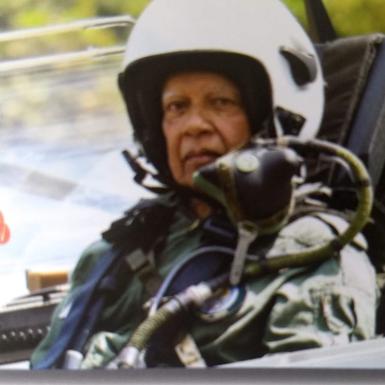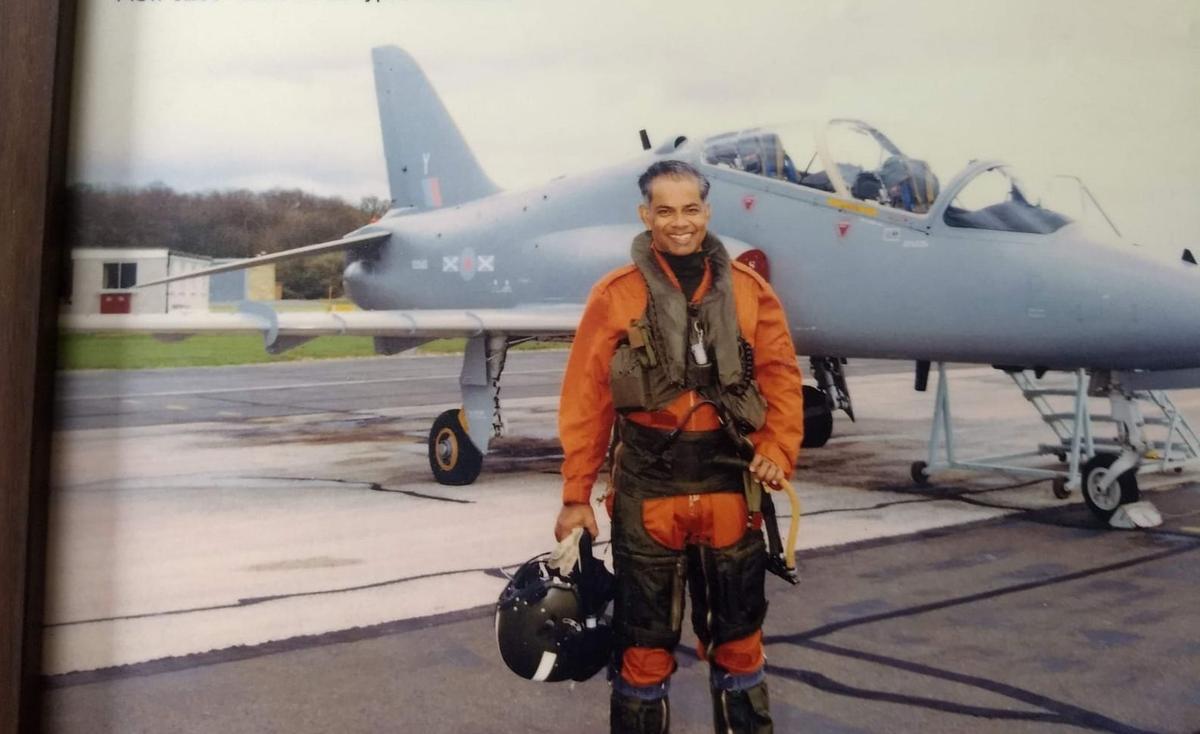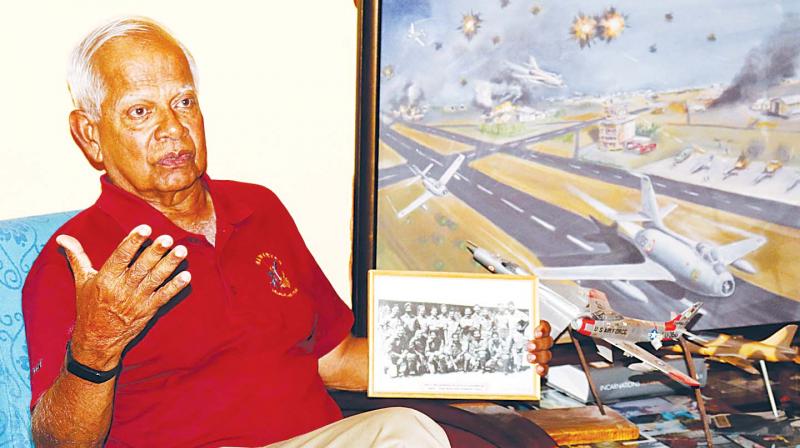Air Marshal Philip Rajkumar (retd.) has brought alive the memories of one of the most decisive episodes in Indian military aviation as he recalls the Sargodha air strike of 1965. Sixty years have passed, but the intensity of that operation, carried out deep into enemy territory, still resonates with veterans and historians alike. The strike on Sargodha, Pakistan’s premier airbase, was designed to cripple its air power and tilt the balance of the war. Rajkumar’s remembrance is not just a recounting of history but also a tribute to the bravery of young pilots who undertook the daring mission against overwhelming odds.
The Sargodha operation, executed during the 1965 India-Pakistan war, remains etched in history for its audacity. Flying in outdated aircraft against a well-equipped adversary, Indian Air Force pilots displayed courage that defied logic. Rajkumar recalls the atmosphere in the squadrons, where fear and determination coexisted. The pilots knew the dangers of engaging Pakistan Air Force fighters in their own backyard, yet they pressed on with unyielding resolve. According to him, the mission’s success lay not only in damaging key infrastructure but also in breaking the psychological dominance of the Pakistani Air Force, proving that India’s air warriors were ready for any challenge.
Reflecting on the strike, Rajkumar underscores the sacrifices of those who never returned. Many young men, barely in their twenties, flew into hostile skies knowing well that survival was uncertain. Their bravery inspired generations of officers who followed in their footsteps. He notes that while military hardware has advanced drastically, the spirit of sacrifice and patriotism remains timeless. His recollection of the Sargodha strike serves as a reminder that wars are fought not just with machines but with unshakable courage and dedication. The 60th anniversary thus becomes not only a remembrance but a lesson in resilience for the present and future.

Lessons from History
Rajkumar’s remembrance of Sargodha highlights important lessons that remain relevant today. He stresses that technology, while vital, cannot replace the spirit of determination in combat. The 1965 strike showcased how disciplined planning, teamwork, and raw courage can overcome even the most formidable defenses. According to him, it is a mistake to view the mission solely as a military operation; it was also a statement of intent, showing India’s ability to take the battle into enemy territory. These lessons are echoed in contemporary military doctrines, where morale and preparedness remain as critical as modern weaponry.
For the younger generation, Rajkumar emphasizes that the Sargodha strike should be seen not merely as a chapter in history books but as a living narrative of India’s struggle for security. In an age where technology dominates headlines, the bravery of 1965 stands as an example of human willpower. He urges military academies to keep this history alive through storytelling, commemorations, and training programs that honor past sacrifices. By doing so, the Indian Air Force ensures that the ethos of courage and sacrifice does not fade with time but continues to inspire cadets taking their first steps into service.
A Legacy That Endures
Sixty years after the Sargodha strike, the legacy of that operation still resonates across India’s military and civilian circles. Rajkumar’s recollections breathe new life into a story that shaped the identity of the Indian Air Force. He asserts that remembrance is not about glorifying war but about honoring the human spirit that rises in defense of the nation. As India marks this anniversary, his words serve as a bridge between past and present, urging citizens to value the sacrifices that underpin freedom. The enduring lesson is clear: courage, once displayed, becomes timeless.
The memories of the Sargodha strike remain deeply etched in the consciousness of veterans who served during the 1965 conflict. For Air Marshal Philip Rajkumar and his peers, it was not just a mission but an experience that defined their careers and lives. They recall the heavy anticipation in the air, the tense silence before takeoff, and the adrenaline coursing through every pilot as they prepared to cross into hostile skies. For many, this was their first experience of war, and the courage displayed set a precedent for the generations of air warriors who would follow them.
The psychological impact of the Sargodha strike cannot be overstated. At the time, the Pakistani Air Force was considered superior in numbers and equipment, yet the Indian Air Force demonstrated that sheer willpower and tactical brilliance could challenge that perception. Veterans recall how morale surged across Indian units after the strike, proving that their courage could match and even outmaneuver the adversary. This psychological advantage would go on to influence subsequent encounters, establishing a balance of confidence that India’s forces carried into later conflicts. For Rajkumar, it was a defining moment of collective belief.

Strategically, the strike on Sargodha was aimed at crippling Pakistan’s air capabilities, and while the damage inflicted is still debated among historians, its symbolic impact was undeniable. The ability of Indian pilots to strike at the heart of Pakistan’s air defense network showed that the Indian Air Force was not just capable of defense but also bold offensive maneuvers. Rajkumar reflects on how this changed the perception of India’s military might, both within the country and abroad. It demonstrated resilience, innovation, and the capacity to surprise adversaries.
Rajkumar also recalls the camaraderie among pilots during those tense days. Bonds forged in wartime are unlike any other, built on shared risk and mutual trust. The Sargodha strike was not just a story of machines and targets; it was about young men who placed their faith in one another. Pilots would often encourage each other, masking their fears with humor and determination. Many of those friendships lasted a lifetime, their roots planted in the smoke-filled skies over Sargodha. Rajkumar emphasizes that these bonds are as vital to military success as any weapon.
For the families of those who never returned, the memories of the strike are bittersweet. Rajkumar’s recollections acknowledge the sacrifices made by these unsung heroes, whose absence left a void in households across India. Their courage ensured the nation’s security, but their stories often remained confined to military records. On the 60th anniversary, Rajkumar urges that these families be recognized and honored, for their loss is inseparable from the nation’s triumph. To him, the memory of Sargodha is not complete without acknowledging the silent resilience of those left behind.
The strike also became a turning point in India’s military modernization. Rajkumar notes that the lessons learned in 1965 accelerated efforts to upgrade aircraft, weapons, and training systems. The realization that outdated equipment placed pilots at a disadvantage spurred policymakers to invest in strengthening the Air Force. In many ways, Sargodha served as both a victory and a wake-up call. Rajkumar highlights that the transformation of the Indian Air Force into a modern, technology-driven force traces part of its roots back to the experiences of that daring mission.

In recounting Sargodha, Rajkumar also emphasizes the importance of leadership. Squadron commanders and senior officers played a pivotal role in inspiring confidence among young pilots. Their calmness in the face of uncertainty reassured the aircrews, giving them the strength to undertake seemingly impossible missions. Rajkumar recalls how this leadership fostered discipline and unity, allowing the strike to succeed despite overwhelming challenges. For him, Sargodha underscores the timeless truth that leadership in moments of crisis can turn fear into courage and hesitation into determination.
The anniversary of the strike is not only a moment of remembrance but also an opportunity to connect with the younger generation. Rajkumar expresses concern that many young Indians are unaware of the sacrifices made during the 1965 war. He advocates for stronger inclusion of such episodes in education, not as glorification of war but as an acknowledgment of national resilience. He believes that stories like Sargodha can instill values of courage, responsibility, and patriotism, ensuring that future generations inherit not just freedom but the inspiration to safeguard it.
Internationally, the Sargodha strike also altered perceptions of India’s military strength. Foreign observers noted the boldness of the mission, and it reshaped diplomatic narratives about India’s strategic capabilities. Rajkumar remembers how foreign media, though cautious in their reporting, acknowledged that the Indian Air Force had demonstrated a willingness to confront formidable odds. This recognition bolstered India’s position on the world stage, signaling that the country was determined to defend its sovereignty with both resolve and ingenuity. For Rajkumar, this global acknowledgment remains a point of pride.
Ultimately, Rajkumar sees the Sargodha strike as a story of timeless inspiration. Six decades later, its memory continues to remind India of the values of bravery, sacrifice, and determination. It is not merely a military episode but a part of national identity, a tale that unites past, present, and future in shared resilience. His recollections urge Indians to view Sargodha not just as history but as a living lesson in courage. In honoring that legacy, the nation ensures that the sacrifices of 1965 are never forgotten, and that their spirit continues to guide generations yet to come.
Follow: Karnataka Government
Also read: Home | Channel 6 Network – Latest News, Breaking Updates: Politics, Business, Tech & More

